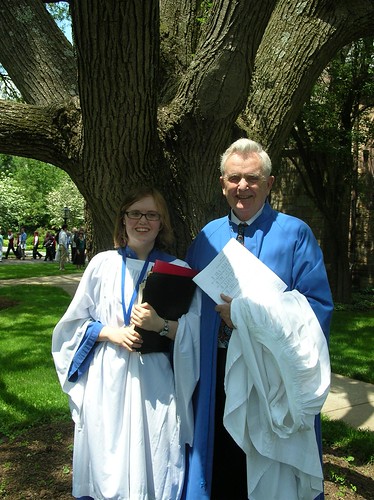According to St Paul, it is ruled out. So it would be untoward for me to quote everything that everyone said about Pippa at church today, or even to quote only what the music director, Tom Whittemore, said about her. (Plus, Pippa would be exasperated with me.) Truth obliges me to say, though, that she was cited for particular honor during the service, and numerous people expressed serious disappointment that we were relocating Pip to Durham this summer.
She made us even more intensely proud than usual this morning, and we were thrilled to have a chance to introduce her to John Bertalot, who had been a marvelous influence on her older brothers (and we were all the more delighted since JB had just heard her praised so effusively).



